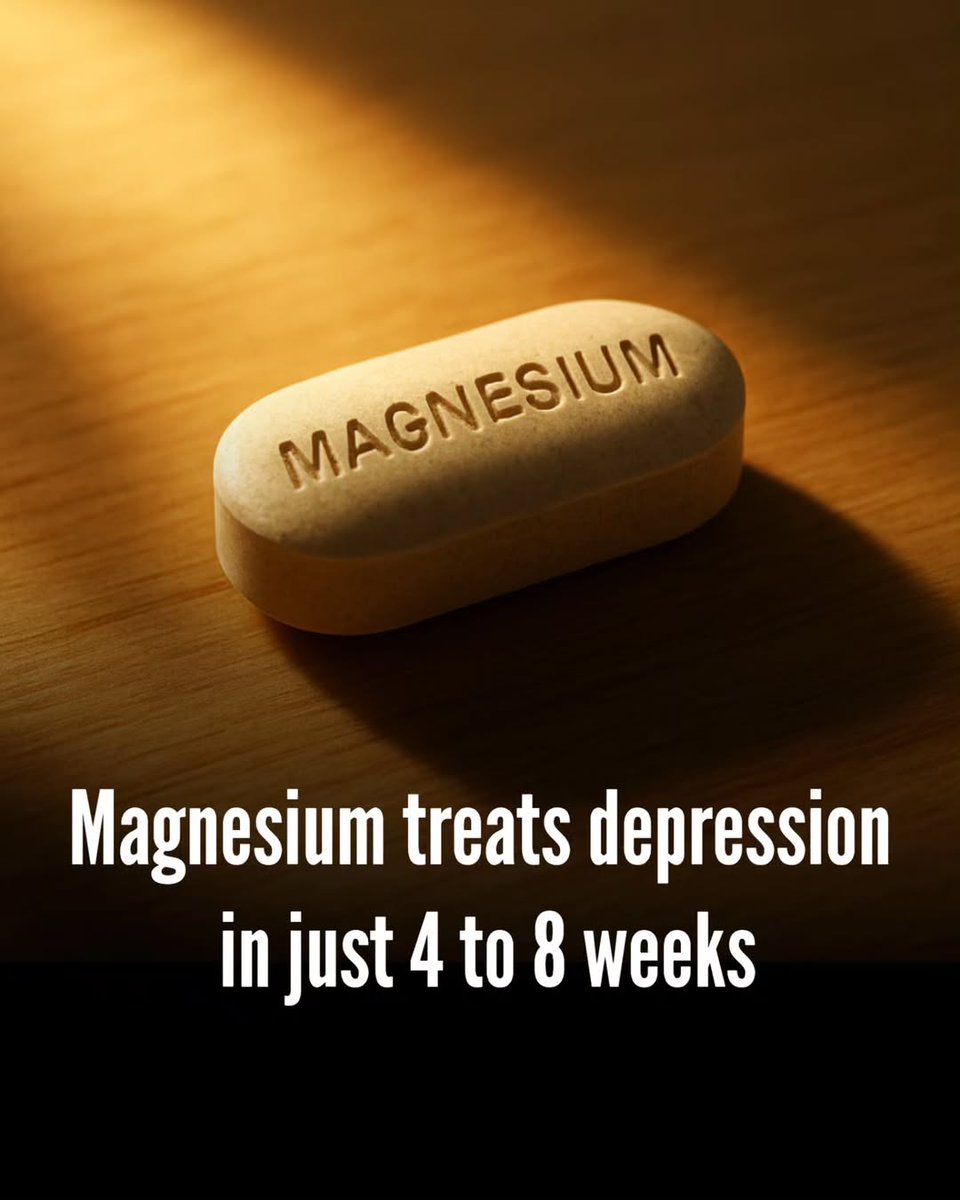Do you feel stressed, anxious, exhausted, or mentally foggy?
This could be the game-changer you've been missing.
Magnesium glycinate can help reduce feelings of anxiety, fatigue, and mental fogginess, with some studies noting improvements in mood and sleep within weeks. 🧵
This could be the game-changer you've been missing.
Magnesium glycinate can help reduce feelings of anxiety, fatigue, and mental fogginess, with some studies noting improvements in mood and sleep within weeks. 🧵

Magnesium is an essential mineral that supports numerous bodily functions, and many people do not get enough of it from their diet.
Here is how How magnesium glycinate works:
Here is how How magnesium glycinate works:
Magnesium glycinate is a highly bioavailable form of magnesium, meaning it is easily absorbed by the body.
Regulates mood: Magnesium helps balance mood-regulating neurotransmitters in the brain, such as serotonin and GABA.
Calms the nervous system: It blocks the activity of more stimulating neurotransmitters and binds to calming receptors, promoting a restful state.
Reduces stress: Magnesium helps regulate stress hormones like cortisol. Glycine also has a calming effect, which can reduce anxiety and promote relaxation.
Aids sleep: By helping to relax muscles and calm the nervous system, magnesium glycinate can improve sleep quality, which in turn can boost mood and energy levels.
Boosts energy: Magnesium is crucial for cellular energy production (ATP), and a deficiency can lead to fatigue.
Regulates mood: Magnesium helps balance mood-regulating neurotransmitters in the brain, such as serotonin and GABA.
Calms the nervous system: It blocks the activity of more stimulating neurotransmitters and binds to calming receptors, promoting a restful state.
Reduces stress: Magnesium helps regulate stress hormones like cortisol. Glycine also has a calming effect, which can reduce anxiety and promote relaxation.
Aids sleep: By helping to relax muscles and calm the nervous system, magnesium glycinate can improve sleep quality, which in turn can boost mood and energy levels.
Boosts energy: Magnesium is crucial for cellular energy production (ATP), and a deficiency can lead to fatigue.
Magnesium glycinate For mental health, anxiety, fatigue, and low mood:
Low magnesium intake is associated with a higher risk of depression, especially in younger adults.
Magnesium glycinate is primarily known for its calming effects on the nervous system. For issues like "brain fog" and cognitive function, some evidence suggests that magnesium L-threonate may be more effective because it more easily crosses the blood-brain barrier.
Low magnesium intake is associated with a higher risk of depression, especially in younger adults.
Magnesium glycinate is primarily known for its calming effects on the nervous system. For issues like "brain fog" and cognitive function, some evidence suggests that magnesium L-threonate may be more effective because it more easily crosses the blood-brain barrier.
Magnesium glycinate is a chelated form of magnesium, meaning it is bound to the amino acid glycine.
This unique structure is what makes it different from other types of magnesium, like magnesium citrate or magnesium oxide
organiclivefood.com/health/magnesi…
This unique structure is what makes it different from other types of magnesium, like magnesium citrate or magnesium oxide
organiclivefood.com/health/magnesi…
• • •
Missing some Tweet in this thread? You can try to
force a refresh




